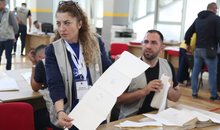
 Flash News
Flash News
Shkëlqim Shehu wins mandate, most voted in Kukës from DP
About 80 thousand envelopes from the diaspora are being counted, results so far
Foreign exchange/ How much foreign currencies are bought and sold today
4 cars collide in Tirana, after the accident the drivers fight with levers
Morning Post/ In 2 lines: What mattered yesterday in Albania
Judgment on the Banjska case, DW: The perpetrators wander in Serbia
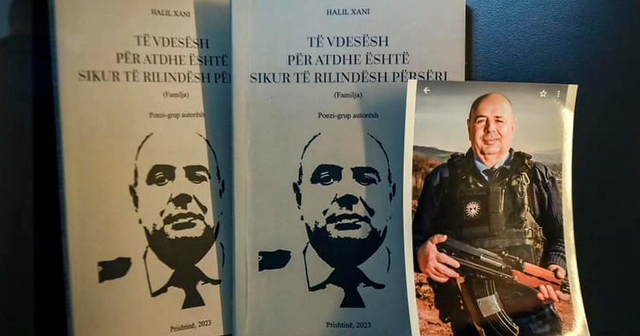
On Wednesday, the trial of 45 people, most of them in absentia, including Milan Radojciqi, for the attack in Banjska, begins in the Basic Court of Pristina. Radojcik, who accepts responsibility for the attack, is still at large in Serbia.
One year after the attack in Banjska in the north of Kosovo, when a group of armed Serbs attacked the police and killed Sergeant Afrim Bunjaku, on Wednesday in the Basic Court of Pristina, the trial against 45 people, including Milan Radojčič, is expected to begin. The group of 45 people is accused of the criminal offenses "Committing a terrorist offense", "Serious offenses against the constitutional order and security of the Republic of Kosovo", "Facilitating and financing the commission of terrorism" as well as "Money laundering". The trial starts in absentia, because most of the accused are inaccessible to the Kosovo judicial system. The file of the Special Prosecution in this case states that "the terrorist group tried to separate the northern part of Kosovo and join it to Serbia".
EU: Those responsible for the attack in Banjska should be brought to justice
On the 1st anniversary of the Banjska attack, international authorities and leaders of Kosovo's institutions demanded that those responsible be brought to justice, emphasizing the fact that the attackers are free in Serbia. The European Union, through its spokesman Peter Stano, reiterated the call to prosecute those responsible for the attack in Banjska and that the EU is committed to justice. "One year after the attack in Banjska. The EU reiterates the call for quick prosecution of those responsible and reaffirms its commitment to justice and accountability. It is a reminder of the need for continuous efforts to maintain security and advance the normalization of relations between Kosovo and Serbia", Stano wrote on the X platform.
The German Embassy in Pristina, in its response, says that "a year ago, during the serious attack in Banjska, the Kosovo policeman Afrim Bunjaku lost his life. His sacrifice will not be forgotten, but the fact remains: Milan Radoičić, the alleged perpetrator behind this crime, despite accepting responsibility, is still free in Serbia".
In the reaction of the German embassy, it is emphasized that the failure to bring those responsible to justice, despite the clear admission of guilt, undermines peace in the region and sends a dangerous message. "Justice must be done. There are no more delays or excuses", it is said.
Even the American ambassador to Kosovo, Jeffrey Hovenier, requested that "the perpetrators of the terrible crime in Banjska be held accountable". on duty during the attack in Banjska, one year ago today. The United States reiterates its call, and it is our expectation, that the perpetrators and all those involved in that horrific crime be held fully accountable," Hovenier wrote on Platform X.
Government of Kosovo: Serbia's act of aggression
Meanwhile, the main leaders of Kosovo's institutions have called the attack a year ago in Banjska an act of aggression by Serbia against the state of Kosovo. "This shows that the Banjska of September 2023 was a plan to attack Kosovo, it was an aggression against state sovereignty, territorial integrity, peace, security and constitutionality," said Prime Minister Albin Kurti, revealing the road sign Afrim Bunjuaku, in the place where the sergeant was killed. President of Kosovo Vjosa Osmani, wrote that "the fall of Sergeant Afrim Bunjaku has shown that freedom has no price and that Kosovo is and will remain indivisible, our freedom and borders inviolable." .
The attack a year ago in Banjka i Zveçani was described as a terrorist attack by international authorities, leaders of Kosovo's institutions and Western diplomats, who have constantly demanded that the perpetrators be brought to justice. Milan Radoicic, former vice president of Lista Serbe, the largest party of Kosovo Serbs supported by Belgrade, took responsibility for the preparation and leadership of the armed group. Kosovo authorities also accuse Serbia of organizing and supporting the group. Official Belgrade denies being involved in the attack, saying that the armed group was made up of Kosovo Serb citizens revolted by Pristina's official approach to Kosovo Serbs./ DW
Latest news


Rama delivers a speech at Skanderbeg Square today
2025-05-14 09:31:34
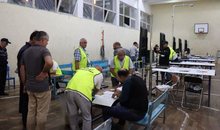
Shkëlqim Shehu wins mandate, most voted in Kukës from DP
2025-05-14 09:11:58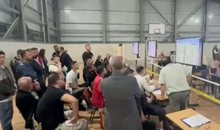
Votes for candidates, names from the open list entering the Assembly in Lezha
2025-05-14 09:03:23

How was the vote stolen in London? Hasjani tells it live
2025-05-14 08:37:52
About 80 thousand envelopes from the diaspora are being counted, results so far
2025-05-14 08:30:37
Foreign exchange/ How much foreign currencies are bought and sold today
2025-05-14 08:13:53

4 cars collide in Tirana, after the accident the drivers fight with levers
2025-05-14 07:58:20
Weather forecast for today
2025-05-14 07:40:35
HOROSCOPE/ Here's what the stars have predicted for each sign
2025-05-14 07:20:57
Morning Post/ In 2 lines: What mattered yesterday in Albania
2025-05-14 07:06:32
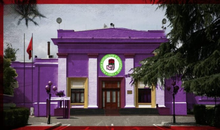
SP towards full legislative control, what does this mean for democracy?
2025-05-13 22:36:52
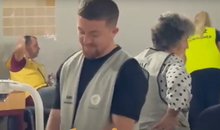
'Braçeee, Braçeee', the counter grabs the attention of CEAZ 5, laughter erupts
2025-05-13 21:55:09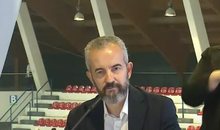

Tirana hosts European leaders on May 16, summit agenda revealed
2025-05-13 21:11:22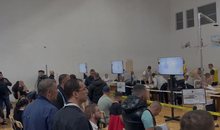
Counting closes in Vlora, PS gets 9 mandates, DP remains with 3
2025-05-13 20:59:14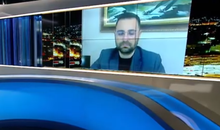
DP representative at the CEC: SP votes in the diaspora, filled by the same hand
2025-05-13 20:50:55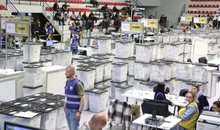
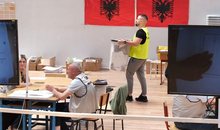
BIRN: European Union concerned about violation of electoral standards in Albania
2025-05-13 20:21:37
A house for a vote? Soft loans for the administration before the elections
2025-05-13 20:10:01
DP-ASHM secures two mandates in Kukës, Isuf Çelaj the most preferred voter
2025-05-13 20:01:22
Poll/ Were the May 11 elections fair?
2025-05-13 19:27:22
Elections 2025/ Counting of diaspora votes continues, results
2025-05-13 19:21:11
Lapaj: We are close to a mandate in Fier, we will take it from the SP
2025-05-13 19:17:33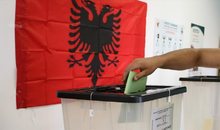

82 mandates, a reward for what?
2025-05-13 18:36:46
International cyber fraud network hit, seizures and checks in Tirana
2025-05-13 18:17:08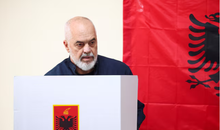


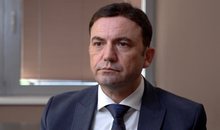
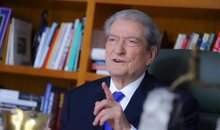
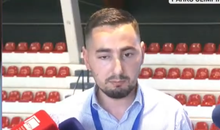

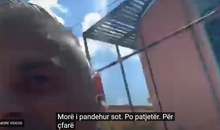

"Electronic Shkodra" takes to the Eurovision 2025 stage tonight
2025-05-13 16:02:42
Discover the 5 reasons to take folic acid even if you are not pregnant.
2025-05-13 15:45:50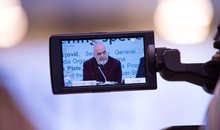
Lack of independent media undermined elections, observers say
2025-05-13 15:34:36
The first ballot boxes for candidates in Rrogozhina are being counted.
2025-05-13 15:31:42




Albania has the most underdeveloped agro-industry in the region, Kosovo is first
2025-05-13 14:43:43
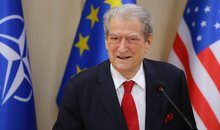
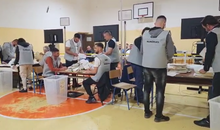
Preferential vote counting concludes in CEAZ 69, Skrapar
2025-05-13 14:23:43
The Director of the ARA appears before SPAK
2025-05-13 14:15:18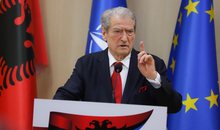
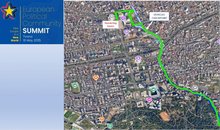
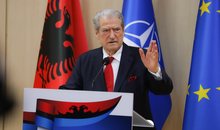
Berisha calls for protest on May 16: Elections were dictated by criminal gangs
2025-05-13 13:56:19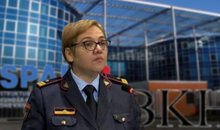
Aida Hajnaj is excluded from re-running for a second term as head of the BKH
2025-05-13 13:50:26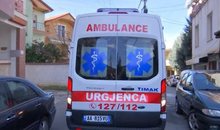
Accident near 9-year-old school in Korça, car hits student
2025-05-13 13:40:23

Lezha Court releases Elda Hoti's husband
2025-05-13 13:24:50
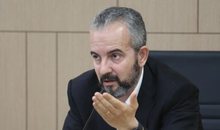
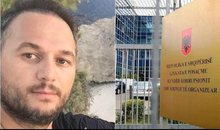
"Toyota Yaris" file/ SPAK demands 6 years in prison for lawyer Radovan Çela
2025-05-13 12:53:16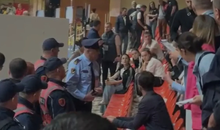
Conflict between observers at a CEAZ in Tirana, 7 escorted
2025-05-13 12:44:39
Counting closes in Kamëz, DP leads
2025-05-13 12:37:10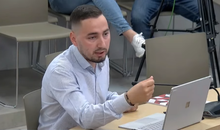
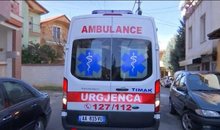
Shkodra, family members find 65-year-old woman hanged
2025-05-13 12:21:03
Alimehmeti: Albania cannot go to Europe with these elections
2025-05-13 12:12:27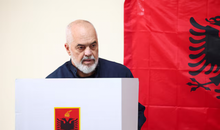
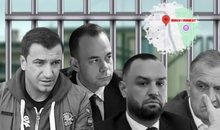
Durres Prison 'bastion' of the Socialist Party
2025-05-13 11:49:41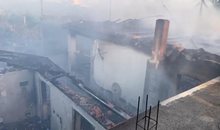
A house in Lezha is engulfed in flames
2025-05-13 11:36:28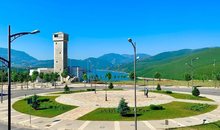

Our Putin!
2025-05-13 11:23:36
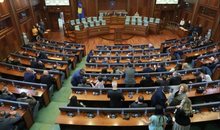
Kosovo Assembly fails to unblock, 15th session fails too
2025-05-13 10:58:49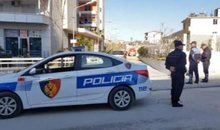
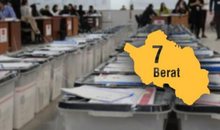
Voting ends in Berat/ SP gets 5 mandates, DP-ASHM gets 2
2025-05-13 10:40:00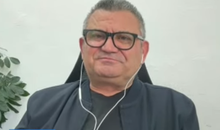
Kikia: Rama's fourth mandate a precedent for democracy
2025-05-13 10:28:22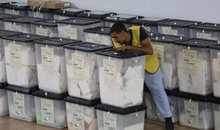
Democrats win Kavaja convincingly
2025-05-13 10:21:00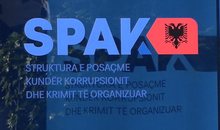


US lifts temporary protection for thousands of Afghans
2025-05-13 09:44:52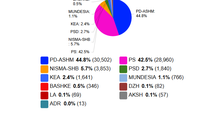
Overturning the result in Lezha, PD-ASHM secures 4 MPs
2025-05-13 09:44:00
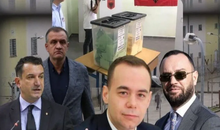
Counting suspended in VIP prison, two more ballots found
2025-05-13 09:23:54
European leaders gather in Tirana in search of creative solutions for Ukraine
2025-05-13 09:11:52

Countdown nears, DP seizes lead in Shkodra and Lezha
2025-05-13 08:51:05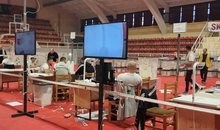
Result/ PS wins for the first time in Paskuqan
2025-05-13 08:39:26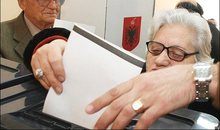


Clear skies and cloudy skies, this is the weather forecast for Tuesday
2025-05-13 08:02:42
Morning Post/ In 2 lines: What mattered yesterday in Albania
2025-05-13 07:48:57

Vote counting in Mirdita concludes, DP wins convincingly
2025-05-12 23:40:46
Diaspora vote counting/ Observer - Ballës: Get out, you kicked us out of Albania
2025-05-12 23:27:36
Four almonds a day, 6 direct benefits to the body
2025-05-12 23:15:40
Vllaznia team 'doctor' arrested, dozens of fireworks found in his bag
2025-05-12 23:02:26
Denunciation/Electoral Reward for Noizy
2025-05-12 22:51:44
